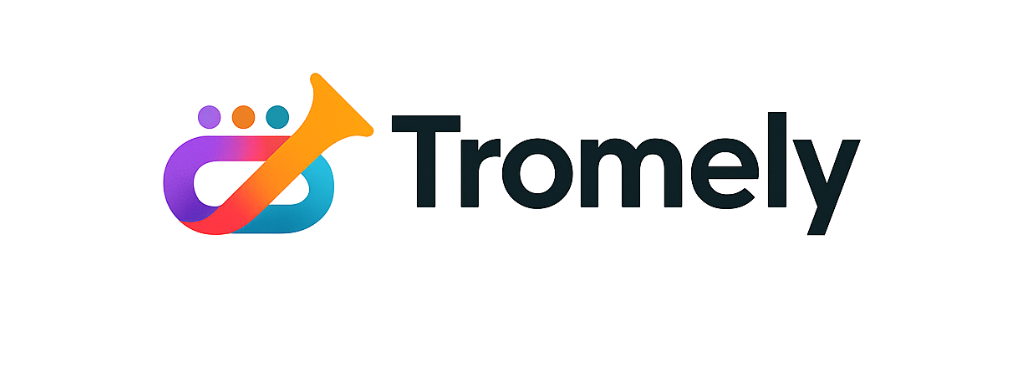In the labyrinthine world of global finance, where skyscrapers gleam and stock markets pulse with relentless energy, an intricate web of corporate maneuvering often remains concealed from the public eye. Amidst this financial tapestry, shell company fronts emerge as enigmatic players, shrouded in mystery and frequently misunderstood. These corporate entities, often cloaked in layers of legal jargon and complexity, are at the heart of a narrative that speaks to the very essence of business intrigue and deception. As we pull back the curtain on this hidden realm, we embark on a journey to uncover the clandestine operations that have the power to influence economies, elude regulatory scrutiny, and, at times, facilitate acts of financial subterfuge that leave a lasting impact on societies worldwide. 💼
At the core of our exploration lies the question: what exactly are shell company fronts, and why do they command such a significant role in the theater of corporate deception? In essence, a shell company is an entity without active business operations or significant assets, serving primarily as a vehicle for business transactions. These entities can be established for entirely legitimate reasons, such as facilitating mergers, managing assets, or protecting privacy. However, the same structural anonymity that makes them useful for lawful purposes also renders them susceptible to misuse. In this article, we will delve into the mechanisms through which shell companies operate, exposing the tactics employed to disguise true ownership and control. We will also examine the thin line that separates legitimate uses from those that venture into the shadowy domains of tax evasion, money laundering, and other financial crimes. 🔍
Throughout this comprehensive exploration, we will shine a light on real-world case studies, highlighting notorious examples where shell company fronts have played pivotal roles in high-profile scandals and corruption cases. From the Panama Papers to the recent revelations of the Pandora Papers, these exposés have unveiled the extent to which shell companies are intertwined with the financial dealings of the world’s elite. By dissecting these instances, we aim to provide a nuanced understanding of the motivations and methods that drive the creation and utilization of shell company fronts. Furthermore, we will discuss the evolving landscape of global regulations and the measures being implemented to curb the illicit use of these entities. Join us as we navigate through this complex and often murky territory, unraveling the secrets of shell company fronts and unveiling the hidden faces behind corporate deception. 🌐
Understanding Shell Companies: A Deep Dive
Shell companies, often shrouded in mystery and deception, have become an integral part of the global financial landscape. While they can serve legitimate purposes, such as facilitating cross-border transactions or asset protection, they are frequently used for more nefarious activities, including tax evasion, money laundering, and hiding assets from authorities. In this section, we will explore the fundamental aspects of shell companies, examining their structure, purpose, and the fine line between legality and illegality.
A shell company, at its core, is a legal entity without active business operations or significant assets. These companies exist primarily on paper, serving as a conduit for transactions rather than engaging in commercial activities themselves. This characteristic makes them attractive for those wishing to disguise the true ownership of assets or to facilitate complex financial maneuvers that can obscure financial flows. Understanding the structure of shell companies is crucial to grasping how they function within the broader financial ecosystem.
One of the main attractions of shell companies is the anonymity they offer. By allowing the true owners to remain hidden, shell companies can obscure the identity of those involved in various transactions. This anonymity can be achieved through the use of nominee directors and shareholders, complex corporate structures, and jurisdictions with lax regulatory requirements. However, this same anonymity can be exploited for illegal purposes, making shell companies a prime tool for those seeking to engage in criminal activities without detection.
The Role of Shell Companies in Corporate Deception
Shell companies are often at the heart of corporate deception schemes, serving as fronts for a range of illicit activities. They can be used to manipulate financial statements, hide liabilities, or create a façade of legitimacy. The deceptive nature of shell companies lies in their ability to mask true financial positions, allowing companies to present a healthier picture to investors, regulators, and the public. This manipulation can lead to significant financial losses for stakeholders who are unaware of the true risks involved.
Another common use of shell companies in corporate deception is to facilitate bribery and corruption. By obscuring the flow of funds, shell companies can be used to make illicit payments to government officials or other entities in exchange for favorable treatment or contracts. These activities not only undermine the integrity of markets but also erode trust in institutions and governance structures. The complexity of these schemes can make detection and prosecution challenging, highlighting the need for robust regulatory frameworks and international cooperation.
Despite the negative connotations often associated with shell companies, it is important to recognize that not all uses of shell companies are inherently illegal or unethical. There are legitimate reasons for their existence, such as protecting assets from political instability, facilitating international business transactions, or managing inheritance planning. The key is transparency and adherence to legal and ethical standards, which can help distinguish legitimate uses from those intended for deception.
How Shell Companies Operate: Strategies and Mechanisms
Shell companies utilize a variety of strategies and mechanisms to achieve their intended purposes, whether legitimate or illicit. A common tactic is the layering of ownership, where multiple shell companies are used in a chain to further obscure the identity of the ultimate beneficial owner. This strategy can involve multiple jurisdictions, each with its own legal and regulatory nuances, making the unraveling of these structures a complex task for investigators.
The table below illustrates some of the common strategies used by shell companies:
| Strategy | Description |
|---|---|
| Layering Ownership | Using multiple entities in different jurisdictions to obscure ownership. |
| Nominee Directors | Appointing directors who act on behalf of the actual owners. |
| Complex Structures | Creating intricate corporate hierarchies to conceal financial flows. |
| Offshore Jurisdictions | Incorporating in regions with lax regulatory frameworks. |
Shell companies often operate in jurisdictions known for their lenient regulatory environments, which can offer both tax advantages and a high degree of confidentiality. These jurisdictions, often referred to as tax havens, provide the legal framework that enables shell companies to function effectively. The combination of favorable tax laws and strict privacy regulations makes these locations ideal for those wishing to conceal assets or avoid taxes.
Global Implications and Regulatory Challenges
The use of shell companies poses significant challenges for regulators and law enforcement agencies around the world. As financial transactions become increasingly globalized, the ability of shell companies to operate across borders complicates efforts to monitor and control illicit financial flows. The lack of transparency and the difficulty in identifying the true beneficial owners of shell companies are major hurdles in combatting financial crimes such as money laundering and tax evasion.
International cooperation is crucial in addressing the challenges posed by shell companies. Efforts to enhance transparency and accountability have led to initiatives such as the Financial Action Task Force (FATF) and the Common Reporting Standard (CRS), which aim to improve information exchange and strengthen regulatory oversight. Despite these efforts, significant gaps remain, and the fight against shell company abuse is far from over.
Watch the video below to gain more insights into the world of shell companies and their impact on the global economy:
Potential Solutions and the Way Forward
Addressing the challenges posed by shell companies requires a multifaceted approach that combines regulatory reform, technological innovation, and international collaboration. Increasing transparency around company ownership is a critical step, and many jurisdictions are moving towards implementing beneficial ownership registries. These registries aim to provide a clear picture of who ultimately controls and benefits from shell companies, making it more difficult to conceal illicit activities.
Technological advancements, such as blockchain, offer promising avenues for improving transparency and traceability in financial transactions. By providing an immutable and transparent ledger, blockchain can help ensure that financial activities are recorded in a way that is both accessible and secure. This technology has the potential to revolutionize the way financial institutions track and report transactions, reducing the opportunities for shell company abuse.
Ultimately, the effectiveness of these solutions will depend on the commitment of governments, regulatory bodies, and the private sector to work together in tackling the challenges posed by shell companies. By fostering a culture of transparency and accountability, we can create a financial system that is both resilient and resistant to abuse.

Conclusion
Unveiling the secrets behind shell company fronts sheds light on a complex and often opaque aspect of the corporate world that is crucial for anyone interested in understanding modern economic systems. Throughout this exploration, we’ve dissected how these entities operate, their purpose, and the legal loopholes they exploit. Shell companies, often perceived merely as legitimate business tools, have become infamous for facilitating various forms of corporate deception. They serve as hidden conduits for tax evasion, money laundering, and other illicit activities that undermine economic stability and equity.
Our investigation began with defining what shell companies are: legal entities with no independent operations, significant assets, or employees. They are often set up to obscure ownership and financial activities. This basic understanding was crucial as it allowed us to explore the dual nature of shell companies—how they can be both legitimate and nefarious, depending on their use. The line between legality and illegality is thin and often defined by the intention behind their creation and use.
One of the critical discussions was on the tactics used by these companies to maintain anonymity. The use of nominee directors, offshore jurisdictions, and complex ownership structures all serve to shield the true beneficiaries from public scrutiny. This anonymity is not just a legal shield but also a moral grey area that companies exploit to gain unfair advantages or hide questionable activities.
We delved into the legal frameworks and regulatory environments that allow such companies to thrive. Despite international efforts to increase transparency, many jurisdictions continue to offer lax regulations, making them havens for shell companies. The challenge lies in balancing the need for legitimate privacy and business confidentiality with the requirement for transparency and accountability. This dilemma is further complicated by the global nature of trade and finance, where coordination across borders is difficult to achieve.
The societal and economic impacts of shell company abuses are far-reaching. They contribute to significant tax revenue losses for governments, exacerbating inequality and undermining the provision of public services. Moreover, they distort markets and create unfair competition, impacting honest businesses and eroding trust in financial systems. Addressing these issues is not just a regulatory necessity but a moral imperative.
Throughout this article, we’ve also highlighted real-world examples where shell companies were at the center of major financial scandals. These case studies underline the need for more stringent oversight and the implementation of global standards to combat abuse. The Panama Papers and Paradise Papers are notable examples that unveiled the depth and breadth of these hidden financial networks. They have spurred legislative changes and increased public awareness, but there is still much work to be done.
To combat the misuse of shell companies, we discussed various strategies and recommendations. These include enhancing transparency through public beneficial ownership registries, strengthening international cooperation, and leveraging technology to improve financial surveillance and reporting. Governments, international bodies, and the private sector must collaborate to develop robust frameworks that deter misuse while supporting legitimate business activities.
In conclusion, the discussion on shell company fronts is not merely an academic exercise but a call to action for all stakeholders in the global economy. The transparency and accountability of corporate entities are fundamental to the integrity of financial systems and the equitable distribution of resources. As citizens, consumers, and professionals, it is our collective responsibility to advocate for reforms and support efforts to close the loopholes that allow shell companies to operate unscrupulously.
We encourage you to delve deeper into this subject, share your thoughts, and take action where possible. Whether it’s by supporting transparency initiatives or simply discussing these issues within your networks, every effort counts. Your engagement is vital in fostering a business environment that values ethics and integrity.
👉 For further reading, consider exploring resources from Transparency International [https://www.transparency.org/] and the Financial Action Task Force [https://www.fatf-gafi.org/]. These organizations provide valuable insights and updates on global efforts to combat financial crimes and improve corporate transparency. 📚
Let’s strive to unveil the hidden faces of corporate deception and work towards a more transparent and fair global economy. 🌍💡
Toni Santos is a visual researcher and design historian whose work excavates the hidden aesthetics of Cold War underground architecture. Through a precise and atmospheric lens, Toni explores the secretive world of bunkers, fallout shelters, and subterranean control rooms—spaces where fear met function and design became a quiet weapon of survival.
His journey is anchored in a fascination with how psychology, geopolitics, and architecture collided beneath the surface. From brutalist safe havens carved into mountains to color-coded civil defense manuals, Toni’s narratives reveal how underground design reflected not just strategic utility, but an entire culture of suspicion, endurance, and visual control.
With a background in archival visual storytelling and spatial design theory, Toni reconstructs the emotional and symbolic language of Cold War interiors—highlighting sterile aesthetics, retro-futuristic technology, and the unspoken codes of protection embedded in every detail.
As the curator of Vizovex, Toni shares rare blueprints, visual analyses, and interpretive essays that bring forgotten Cold War spaces back into the cultural imagination—offering a deeper understanding of the architecture of anxiety and hope.
His work is a tribute to:
The visual psychology of Cold War safety design
The overlooked beauty in utilitarian environments
The role of design in shaping perception during times of fear
Whether you’re a student of history, a lover of mid-century design, or someone drawn to the unseen layers of the past, Toni invites you underground—where silence was strategy, and every bolt, map, and fluorescent bulb held meaning.





